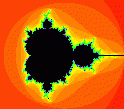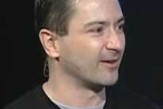cognitive neuroscience
Scicon Review
Investigating the Awareness of Remembering
Ken A. Paller, Joel L.Voss, Carmen E. Westerberg Article in Perspectives on Psychological Science Abstract There is a marked lack of consensus concerning the best way to learn how conscious experiences arise. In this article, w...
Scicon Review
The Default Mode Network and Self-Referential Processes in Depression
In a recent study, Sheline and colleagues examined whether patients with major depression were impaired in their ability to regulate the activity of the default mode network, which is characterized by self-referential functions...
Scicon Review
When Your Gain is My Pain and Your Pain is My Gain: Neural Correlates of Envy and Schadenfreude
We often make social comparisons to evaluate others and ourselves. In a recent study in Science, Takahashi and colleagues investigated the neurocognitive mechanisms of envy and schadenfreude (pleasure at another’s misfo...
Scicon Review
Learning, Arts, and the Brain: The Dana Consortium Report
From the Dana Foundation: Learning, Arts, and the Brain, a study three years in the making, is the result of research by cognitive neuroscientists from seven leading universities across the United States. In the Dana Consortiu...
Scicon Review
The ‘Super-aged’ Proffer a Template
From The Dana Foundation: My great-grandmother lived to the ripe old age of 98. While many of her friends and neighbors had lost critical cognitive function decades before, requiring assistance for day-to-day activities, she s...
Scicon Review
Gamma oscillations mediate stimulus competition and attentional selection in a cortical network model
Christoph Börgers, Steven Epstein, and Nancy J. Kopell Article in Proceedings of the National Academy of Science, USA Abstract Simultaneous presentation of multiple stimuli can reduce the firing rates of neurons in extrastria...
Scicon Review
The Decider
Informing the debate over the reality of ‘free will’ requires learning something about the lateral habenula. From ScienceNews: At the end of The Matrix trilogy, Neo and Agent Smith are engaged in one final, interminab...
Scicon Review
Human Brain is Capable of Subliminal Conditioning, Study Shows
From The Dana Foundation: Imagine you are playing a game of poker. Watching your opponent, you have a gut feeling that if you raise the bet, he will fold. You decide to go with your intuition and it works. Were you just lucky? ...
Scicon Review
Is surfing the internet altering your brain?
From Reuters: CANBERRA (Reuters) – The Internet is not just changing the way people live but altering the way our brains work with a neuroscientist arguing this is an evolutionary change which will put the tech-savvy at t...
Scicon Review
Researchers can read thoughts to decipher what a person is actually seeing
From physorg.com — Following ground-breaking research showing that neurons in the human brain respond in an abstract manner to particular individuals or objects, University of Leicester researchers have now discovered tha...













